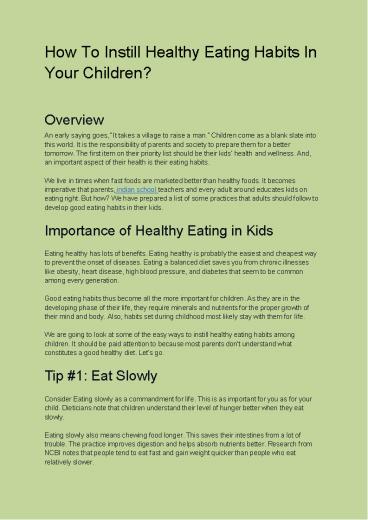
Many diseases can be prevented by practicing healthy living tips for seniors. It is important to stay current on all vaccinations. Even though it sounds obvious, having the right habits can make a big difference in your life. Hand washing is a great tip for senior citizens. This simple practice will help to prevent germs and keep you healthier for longer. Learn more about this tip. It's possible that you are surprised to find out that it hasn’t been a tradition for years.
Socialization
Seniors who are social are less likely to develop cognitive impairments or dementia, according to a new study. Rush University Medical Center's Alzheimer's Disease Center discovered that social seniors are less susceptible to developing depression. Senior socialization is essential for your overall health, stress reduction, and increased longevity. Socialization can help you feel better and make others feel better.
Physical activity
Among the top factors that influence the quality of life of seniors, staying physically active is one of the most important ones. Regular physical activity not only improves overall health, but it helps delay many diseases associated with aging. Exercise strengthens the muscles, reduces the risk for falling, and prevents the onset or progression of joint pain. Aerobic exercise programs are a great option for seniors with weak muscles and joint. These programs can even help people with arthritis stay active.

Nutrition
One of the most important tips for healthy living is to keep your mind active. Research shows that good sleeping habits can improve memory and concentration. You can avoid caffeine that can disturb your sleeping pattern and still keep in touch with loved ones and friends. You can engage in creative activities such as crossword puzzles and reading. You should not eat refined sugars and processed grains, but you can still enjoy them in moderation. Here are some senior-friendly tips.
Regular wellness visits
While there are many healthy living tips for seniors, regular checkups are crucial for early detection of diseases and illnesses. As a senior, your immune system is compromised, and some illnesses that seem minor to younger people can cause life-threatening complications. Senior citizens need to visit their doctor regularly in order to prevent illness and keep their immune system strong. These wellness visits also provide valuable information about your general health. These visits are also helpful in preventing falls and other injuries.
Avoiding caffeine
Although caffeine is great for your health, you don't have to avoid it. Moderate amounts can do no harm. Many assisted living facilities now offer freshly brewed coffee and tea. Although caffeine may increase your energy levels, it can cause adverse health effects for seniors. Limiting your intake of caffeine can help you avoid these problems. Instead, consider home care software and homecare systems to monitor the intake of your senior loved one.

FAQ
How can you improve your wellbeing?
Wellbeing refers to "the state or condition of being physically, mentally, spiritually, and socially well." There are many factors that affect our well being, including work, family, health, relationships and finances. Your first step to bettering your well-being, is to identify the areas in your life that require improvement. Next, take steps to improve these aspects.
Here are five methods to improve your health and well-being.
-
Exercise - It boosts endorphins, which can make us happier.
-
Sleep – A longer sleep time reduces stress and anxiety.
-
Nutrition – Eating healthy food (such as fruits or vegetables) will improve your mood.
-
Meditation – Regular meditation reduces anxiety and stress.
-
Socialization: Spending quality time together with our families and friends makes us happy.
What is Positive Psychology & Why is It Important?
Positive psychology looks at what makes us feel better. Positive psychology's goal is to improve self-esteem, happiness, health, and wisdom.
Two types of positive psychology exist: trait positive psychology (or process positive psychology). Trait positive psychology studies the natural behavior of people. How we can use certain strategies for achieving specific goals in process positive psychology
What causes depression in teenagers?
Adolescence is when we develop our identities. We begin to figure out who we are as individuals and where we fit into society.
These times are also a good time to make new friendships or romantic connections. These experiences can cause stress.
Stress is normal, but if you find yourself experiencing more than usual amounts of stress, then you should seek help.
You may believe that you can manage everything yourself, but sometimes it's better to have someone to talk with.
Your friends and family members can provide support during times of stress. They can also teach you ways to manage stress.
You might try meditation or exercising. Both of these activities can help to reduce stress.
You can also join a group like a church, sports team or church. You will make new friends and meet new people.
Is there something wrong with me if I'm depressed?
Depression is a problem that teens often face. Yet, depression is common among teenagers.
This doesn’t mean you’re insane or weak. People who are depressed don't know it. Depression is a medical condition.
There are different kinds of depression. Some people feel only sadness, while some others experience other emotions. There are different levels of severity.
Some people suffer mild depression, others are more severe. It's important that you understand that depression doesn't always have to be bad. Sometimes, it helps us deal with stressful situations.
If you are constantly feeling sad, tired, or demotivated, it's a good idea for you to visit a doctor. Your doctor will be able to diagnose you and determine if you need treatment.
How can I improve my mental wellbeing?
When we feel stressed out at work, home, school, or with our families, mental health is crucial for all of us. You can improve your mental health by exercising regularly, eating healthy foods, sleeping well, and spending quality time with family members. Exercise releases endorphins that make us feel happier. A healthy diet is important for our bodies to function properly. A good night's sleep will give you energy throughout the day. And finally, spending quality time with loved ones improves our relationships and reduces stress.
How can you tell if you are suffering from a mental illness or not?
An individual may be diagnosed if they experience symptoms that disrupt their daily activities. The symptoms of mental illnesses can vary from one person to another. The most common symptoms of mental illness are sadness, anger, guilt, hopelessness and loneliness.
A person could also be diagnosed if they meet any of the following criteria:
-
Troubled thoughts or feelings
-
Disturbed behavior
-
Disturbance in functioning
-
Impairment in the ability to relate to others
Why is it important to have a healthy mind?
Work, play, learn and love. When we talk about mental health, we're talking about our overall wellness. When we refer to mental health, we mean the physical, psychological and spiritual factors that have an impact on us every day. There are many options for taking care of yourself mentally and physically as well as emotionally, spiritually, financially, and socially. It's not necessary to do all the things at once. You can just start!
Understanding where you are now is the first step to improving your mental health. Take this quiz to find out if you're doing enough to support your mental health. If you're not satisfied with your results, you might consider making lifestyle changes.
Let's say you got a high score. Congratulations! Here are some things you can do that will help improve and maintain your mental health.
-
Get enough sleep Getting adequate rest helps keep your brain sharp and energized. The American Academy of Pediatrics (AAP), recommends that children get 7 to 8 hours of sleep per night.
-
Exercise Regularly. Exercise releases endorphins, which make you happier and less likely stress. Do 30 minutes exercise five times a weeks.
Statistics
- More than 50% will be diagnosed with a mental illness or disorder at some point in their lifetime.3 (cdc.gov)
- In any given year, an estimated 18.1% (43.6 million) of U.S. adults ages 18 years or older suffered from any mental illness, and 4.2% (9.8 million) (healthypeople.gov)
- More than 40 million adults in the United States have an anxiety disorder, but less than 37% of people seek mental health treatment for their symptoms. (talkspace.com)
- According to the National Alliance of Mental Illness (NAMI), one in five Americans experiences mental health issues which translates to more than 40 million adults a year. (doctorondemand.com)
- It does have some influence, but not nearly as much as we might think, so focusing less on attaining wealth will likely make you happier (Aknin, Norton, & Dunn, 2009); (positivepsychology.com)
External Links
How To
How to Improve Memory
Everyone hopes to be able recall more about memory. Memory loss happens to everyone at some time. More than half of Americans aged 65 and older suffer from dementia.
You have many options for improving your memory. Here are three simple steps you can try today:
-
Increase your intake of fruits and vegetables. Vegetables and fruits are rich in antioxidants, vitamins and minerals as well as fiber and phytochemicals which can boost brain function. They also have essential nutrients that protect against neurological disease.
-
Get enough sleep. Sleep deprivation has been linked to poor concentration and memory loss. Make sure you get seven to eight hours of restful sleep each night.
-
Take a Walk. Walking stimulates blood flow and improves memory. Walking is good for your health and helps you look slimmer.